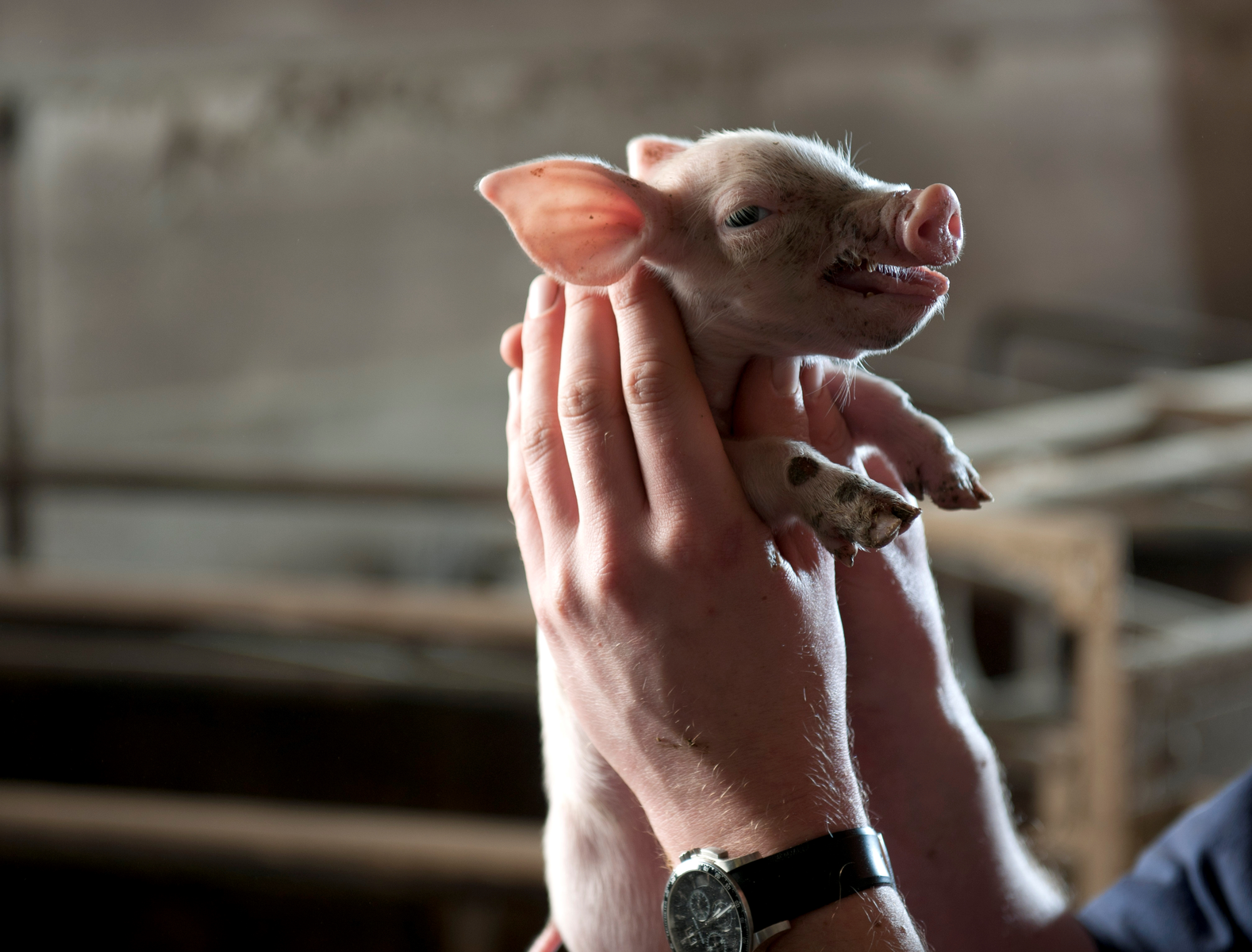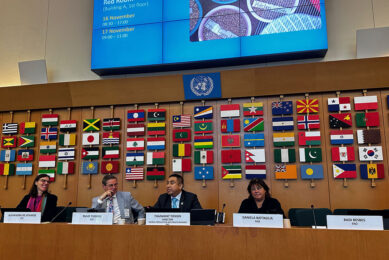Getting off to the healthiest start possible

Nutritional programming is an extensively studied concept in human nutrition. It means that nutritional choices during pregnancy and after birth can make significant changes for the human being later in life. And this is true for animals as well.
New parents are subjected to all kinds of contradictory advice regarding feeding their new-born child. Although the advisers may not always be right, their intentions are good; getting the infant off to the healthiest start. What a human eats as a baby and child strongly affects the long-term body weight, health, metabolic programming, immune system, and overall aging. Experts in the field of human nutrition often refer to this concept as ‘nutritional programming’. In human nutrition, this concept is widely studied with regards to programmed changes in the child’s body and the effect on the health status as an adult. According to dairy food company and infant food producer Danone, it is all about getting the first 1,000 days of the child right. “This is the time in a young life when nutrition can have an impact that lasts a lifetime. Early life nutrition has a significant role on the brain and immune system development, as well as how the body metabolically reacts to foods or nutrients that in turn may influence the likelihood of developing conditions such as obesity, allergy, heart disease and diabetes in later life,” they state in their communication to new parents.
Impact of malnutrition during gestation
Nutritional programming (or metabolic programming) is an intriguing phenomenon. And whether you talk about humans or animals, the concept remains the same. Some of the human nutrition studies regarding this topic show interesting results. A study in the early 1990’s for example showed a strong correlation between low birth weight and the risk for chronic diseases such as type 2 diabetes. Babies below a birth weight of 2.5 kg showed to have more changes to develop this disease at a later stage of life, compared to babies that are heavier at birth. Another great study was done in the Netherlands, where they looked at Dutch women during the Second World War that gave birth in these harsh conditions. Despite this historical disaster, this group of women provided a unique opportunity to study effects of undernutrition during gestation in humans. These women clearly experienced undernutrition: In September 1944, there was an embargo on all food transports to the Western part of the Netherlands. Between September 1944 and April 1945, a harsh winter with an extreme shortage of food was experienced. The researchers found indications that undernutrition during gestation affects health in later life. The effects on undernutrition, however, depend upon its timing during gestation and the organs and systems developing during that critical time window. Furthermore, these Dutch findings suggest that maternal malnutrition during gestation may permanently affect adult health without affecting the size of the baby at birth.
Spreading to the animal feed sector
Although nutritional programming is becoming a real hot topic in human nutrition, the interest to apply this to young animals is gaining interest as well. And some of the results seen in humans and rodents might be useful for animal nutritionists as the correlation between infant nutrition and obesity might be comparable with young animal nutrition and its effect on weight gain or fertility in adult farm animals. Although many studies have been done on farm animals, it seems that feed companies have only recently started to acknowledge that young animal nutrition is a big part of successful farming. Getting the right amount of feed and nutrients to the young animals (before and after birth) will facilitate that they perform better later on in life. And it is not only about having the right genes (considering that cows do not use 30-40% of their genetic potential for milk yield). Proper nutrition can have a significant impact and can trigger animals to use their genetic potential better. At a recent feed symposium in the Netherlands, Swiss veterinarian Martin Kaske stated: “We should invest more in feeding the young calf, as this has a huge impact on subsequent performance in later life. At the moment, this is not the focus of the farmer (yet).” He also explained that higher feeding intensity in the first weeks of life has both short time as long term effects. The short term effects include better growing and healthier animals. On the longer term, effects are seen in better milk production, better mammary development and younger breeding age. For example: feeding a calf four litres of colostrum in the first six hours leads to a cow that can be inseminated half a month earlier. It also leads to 5% more cows reaching the third lactation. In swine, a strong correlation has been observed between low birth weight and lower live weight at slaughter. Also postnatal feeding intensity seems to affect subsequent fertility in pigs and piglets that drink less colostrum have a higher risk of dying.
Financial implications for farmers
Based on the results from human studies, combined with the challenges faced in the animal production sector (e.g. higher feed costs, tighter margins for meat, increased demands from consumers), we can certainly state that neonate nutrition deserves even more attention than we did before. When seeking to maximise animal performance, efficiency and intestinal health, it’s critical to focus on proper feeding of young animals so as to deliver greater returns. It’s all about increased incomes for the farmers from such things as reaching slaughter sooner, heavier animals or more milk production. In other words, the neonate phase in an animal’s life can have a significant effect on growth rate, feed conversion and milk production all of which have financial implication. A good start is half the battle won.
References are available on request.
Join 26,000+ subscribers
Subscribe to our newsletter to stay updated about all the need-to-know content in the feed sector, three times a week. Beheer
Beheer









 WP Admin
WP Admin  Bewerk bericht
Bewerk bericht